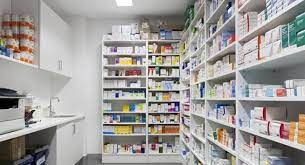The Ghana National Chamber of Pharmacy and the Pharmaceutical Importers and Wholesalers Association of Ghana have jointly expressed concerns regarding the Ministry of Health’s proposed import ban on 142 drugs.
While not rejecting the idea of restrictions, the pharmacists are urging a careful and thorough approach to prevent unintended consequences that may impact the health and well-being of the Ghanaian population.
During a press conference in Accra, representatives from the pharmaceutical groups highlighted their prior collaboration with the ministry during the ban on the initial 49 drugs.
They emphasized the importance of stakeholder engagement during that process, allowing wholesalers to identify drugs with local manufacturing capacity.
Fiifi Yamoah, the Executive Secretary of the Pharmaceutical Importers and Wholesalers Association of Ghana, raised the point that, unlike the previous ban, no stakeholder meeting had taken place this time.
He called for a similar dialogue to facilitate discussions on the proposed ban, ensuring that local manufacturers can effectively take over production without compromising the quality of the drugs.
Other concerns
Meanwhile Members of the Pharmaceutical Manufacturers Association of Ghana (PMAG) have debunked concerns raised by the Ghana National Chamber of Pharmacy (GNCoP) and the Pharmaceutical Importers and Wholesalers Association of Ghana (PIWA) over the ban on 142 imported drugs.
In response, PMAG, in a statement said the claim is misinformation regarding some developments in the pharmaceutical sector and that they have the resources and capacity to manufacture the drugs.
“PMAG wishes to state that members of the pharmaceutical manufacturing industry have the capacity to manufacture all the medicines on the restricted medicines list to support Ghana for economic growth and job creation. It is heart-warming to know that most of the pharmaceutical importers have small-scale facilities with the roadmap to scale up in the near future.”
It further stated, “There are 40 medium to larger-scale manufacturers, over 100 small-scale manufacturers, and over 5,000 pharmacists with the capability to manufacture these 142 medicines, and this is a good opportunity to create jobs and grow the economy.”
The statement explains that the action by these groups is dangerous as it would crush the growth and development of the pharmaceutical industry and the medical security of Ghana.
The Association, in the statement, supported the proposal by the Ministry of Health, asserting that it would help the country to be a manufacturing hub for medication and create employment opportunities.


Comments are closed.